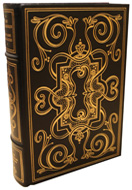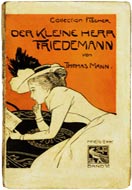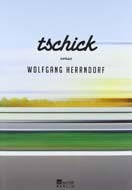Writerpreneur: The Basic Formulas of Fiction (Writerpreneur Guides)
Harris, William Foster; Swain, Dwight V; Worstell
Verkäufer
Ria Christie Collections, Uxbridge, Vereinigtes Königreich
Verkäuferbewertung 5 von 5 Sternen
![]()
AbeBooks-Verkäufer seit 25. März 2015
Beschreibung
Beschreibung:
In. Bestandsnummer des Verkäufers ria9798230023463_new
Inhaltsangabe:
William Foster-Harris, along with Walter S. Campbell and Dwight V. Swain, created one of the most effective writer-training courses of all time. Their goal was to speed the progress of student-writers and shorten the time of study needed before becoming professional at their craft.
The list of top-flight authors trained by Campbell and Harris includes, among others: Louis L'Amour, Mary Higgins Clark, Fred Grove, Tony Hillerman, Bill Gulick, William R. Scott, Ed Montgomery, Neal Barrett, and Bill Burchardt.
While Campbell emphasized students take an analytical approach to learning their craft by studying published works, Harris did not analyze scenes, settings and characterizations as did Vestal. Instead, he was concerned mostly with the overall effect of the plot and how to achieve it.
Once a student had completed the initial courses under Campbell, Harris took over to hone the skills of would-be fictioneers. His lab-type classes were weekly in-person interviews. He required the student to write one new 5,000-word short story each week, and Foster would then critique it. After the first week, the student would have several stories in the rewrite process together with each new one. When Foster deemed one to be ready, the student would submit it to the market of their choice - and if it sold, that brought a better mark from Foster.
Plotting, which many beginners find the bugaboo of writing, Professor Harris considered no problem at all. "The way to catch a plot," he explains, "is the way to catch a woman. Pretend not to be interested." The student who complains that it is impossible to find a new plot because all the plots have been used, he told, "You don't need a new plot. Just put a little parsley on the same old dish!"
Dwight V. Swain joined the program in 1952. His contribution was through his experience in film scriptwriting, as well as extensive published work in pulp fiction. He expanded and simplified the Scene as both a building block and intrinsic glue for all stories - well beyond Campbell and Harris' foundation.
Learn from Foster-Harris:
- the core equations for all plots
- achieving the synthesis of writer, reader, and main character to make the story succeed
- combining feeling and fact with each sentence to engage the reader with the story's movement through time
- fitting your story character to the story problem and vice-versa
- developing conflict within the character to make them real and human
- the four parts to the correct short story
- use of tags, pointers, and plants to define characters and move plot along
- the use of linked scenes to involve the reader into a single continuing experience
- building a short story into a novelette, and into a novel - and when you shouldn't
- five routine revisions and rewrites necessary to polish the first draft
Learn from Dwight Swain:
- what three things are needed to develop a good novel
- the first two items found at the start of any commercially successful novel
- the three elements of any scene
- the three elements of any scene's sequel
- how moving copy requires interlocking motivation-reaction units
- why you develop contrasting characters in your novels
- the three wishes and four desires all characters want
- the four tests for every scene and chapter in your novel
Get Your Copy Now.
Über die Autorin bzw. den Autor:
Dr. Worstell is known for the depth and volume of his research - as well as his published works.
With seven degrees to his credit, ranging from comparative religions to computer networking, there are few fields he hasn't researched as a means to finding workable truths anyone can apply.
His current work is in making fiction writing profitable, and kicking over the bee-hives of established "guru's" in that field. Worstell feels that creating a living by writing should be simple and inexpensive.
Most of his work is available through his blog posts long before they become books. This blog-to-book method is a way of sharing and refining his material broadly to everyone.
Bibliografische Details
Titel: Writerpreneur: The Basic Formulas of Fiction...
Verlag: Midwest Journal Press
Erscheinungsdatum: 2024
Einband: Softcover
Zustand: New
ZVAB ist ein Internet-Marktplatz für neue, gebrauchte, antiquarische und vergriffene Bücher. Bei uns finden Sie Tausende professioneller Buchhändler weltweit und Millionen Bücher. Einkaufen beim ZVAB ist einfach und zu 100% sicher — Suchen Sie nach Ihrem Buch, erwerben Sie es über unsere sichere Kaufabwicklung und erhalten Sie Ihr Buch direkt vom Händler.
Millionen neuer und gebrauchter Bücher bei tausenden Anbietern
Antiquarische Bücher
Von seltenen Erstausgaben bis hin zu begehrten signierten Ausgaben – beim ZVAB finden Sie eine große Anzahl seltener, wertvoller Bücher und Sammlerstücke.
Erstausgaben
Erstausgaben sind besondere Bücher, die den ersten Abdruck des Textes in seiner ursprünglichen Form darstellen. Hier finden sie Erstausgaben von damals bis heute.
Gebrauchte Bücher
Ob Bestseller oder Klassiker, das ZVAB bietet Ihnen eine breite Auswahl an gebrauchten Büchern: Stöbern Sie in unseren Rubriken und entdecken Sie ein Buch-Schnäppchen.



